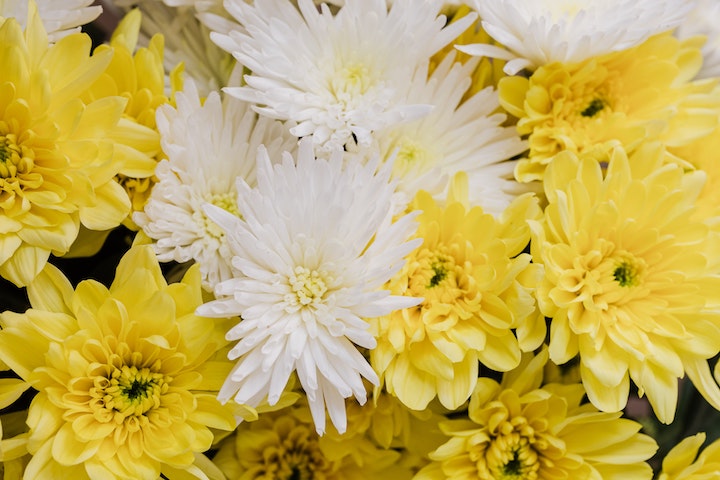
What is the Double Ninth Festival (重陽節)?
Also called the Chung Yeung Festival and Chongyang Festival, the Double Ninth Festival is an ancient memorial festival that falls on the ninth day of the ninth month of the lunar calendar. In 2020, the Double Ninth Festival falls on the 25th October in the Greogorian calendar.
On this day, families visit the graves of their ancestors to pay their respects. People also go hiking together as heading to higher ground symbolizes climbing to a higher position in life and living longer. Chrysanthemums are also ubiquitous on the Double Ninth Festival, as the Festival takes place when the flowers are in full bloom. Drinking chrysanthemum wine and admiring chrysanthemums have thus become part of the day’s celebrations.
Go hiking with your family and friends this Double Ninth Festival! Check out our guides on short and scenic hiking trails and five hikes that are perfect for cooler weather.
Besides Hong Kong, mainland China and Taiwan, the festival is also observed in Japan, Korea, and Vietnam.
Do not confused the Double Ninth Festival with the Ching Ming Festival (清明節)! The latter, which is also a day to commemorate ancestors, takes place in the third month of the lunar calendar.
Why is it called the Chung Yeung Festival?
In the I-Ching, the number nine is considered a “yang”, ie. masculine, integer. The first two characters of the festival, “Chung Yeung” (重陽), literally translate into “double masculinity”. As the Festival falls on the ninth day of the ninth month in the lunar calendar, it was named the Chung Yeung Festival.
The origin of the Double Ninth Festival
There are a few legends associated with the origin of the Double Ninth Festival. A popular one goes like this:
In the Eastern Han dynasty (25 – 220 CE), a demonic presence from a nearby river brought illness and death to villagers in Runan country. (Runan is a region in today’s central Chinese province of Henan.) One of the villagers was a young man named Heng Jing. As Heng Jing had lost his parents to the disease, he vowed to slay the demon. To achieve that, he decided to seek the help of a sage named Fei Chang-fang. As Fei lived high up in the mountains, Heng left his village and began his journey uphill.
The sage gifted Heng with a magical sword that had demon-vanquishing powers and taught him how to use the weapon. Heng practised day and night, and eventually became a skilled swordsman.
One day, Fei told Heng that the demon was going to return on the ninth day of the ninth month, and advised Heng to return home to lead his people to safety. Fei armed Heng with a bag of dogwood leaves and chrysanthemum wine, and Heng set off.
When the fateful day arrived, Heng led his family and fellow villages up a nearby mountain. To shield them against the demon, he equipped everyone with dogwood leaves, and gave everyone some chrysanthemum wine to drink, as both had protective powers.
As the demon emerged from the river, Heng swiftly killed it with Fei’s magical sword. From then onwards, the ninth day of the ninth month became a day to commemorate this event. This story is also why chrysanthemum wine and dogwood are still part of the Double Ninth Festival’s celebrations today.
The Double Ninth Festival in Hong Kong
The Double Ninth Festival is better known as the Chung Yeung Festival (重陽節) in Hong Kong. The day is a public holiday in the city. If the Festival falls on a Sunday, like in 2020, it is followed by an additional day of holiday on Monday.
The Festival coincides with the start of the hiking season in Hong Kong, as the stifling summer heat gives way to the cooler weather of fall. In a nod to tradition, families usually spend the day hiking or visiting the graves of ancestors. Interestingly, hill fires tend to occur more often on Chung Yeung Festival than on any other day of the year in Hong Kong. This is often due to the dry weather and increased burning of incense during ancestor worship.
Find out how our founder Cecilia and her family celebrates the Chung Yeung Festival here!
On the other hand, the Hong Kong government holds an official ceremony every year on the day to commemorate those who died defending Hong Kong in the Second World War. The chief executive, senior officials, and mainland government groups are among the many attendees at the ceremony, which takes place at the Hong Kong City Hall Memorial Garden. Due to COVID-19 concerns, it is still uncertain whether this year’s ceremony will take place as usual.
Interested in learning more about traditional Chinese festivals? Check out our blog posts on the Mid Autumn Festival and the Cheung Chau Bun Festival!



